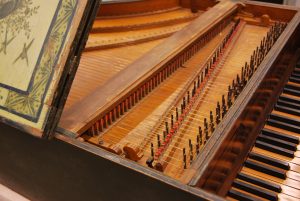Reveille is a French word that translates to “wake up”. It seems that the late 18th century was a time when printed military manuals became a major thing in the western world (you start to find many of them at that time, and very few from before). France was considered one of the leading militaries and French was commonly used in military circles. (The original collection of books that started the West Point library are almost entirely in French.) Many French words have found their way into our military lexicon.
There are various Reveille’s that have been used by different militaries and in different eras. The United States Army has been using it’s current Reveille since 1835 when it was borrowed from the French with slight modifications. The British Army has two bugle calls: the Rouse, and the Long Reveille. The Rouse dates back to at least 1800 from Hyde’s Preceptor. Interestingly, the Royal Navy and Royal Marines have their own, different, version of Reveille. The Irish Reveille is one of the newest. The Irish Army’s School of Music prepared an entirely new set of bugle calls when the Irish Free State was established. Japan has an even newer Reveille, as they rewrote their bugle calls after the end of WWII. (I do not know if China wrote new bugle calls or brought back old ones when they reinstated buglers in 2019.)
Usage of Reveille also varies. Obviously, it has been used as a signal to “wake up” the troops. But this is not always the case. The US Army now uses Reveille to mark the start of the official duty day. Soldiers should already be awake, shaved, dressed, and in formation, by the time it sounds. The Irish Army has a separate bugle call, Sunrise, for this purpose. The British Army uses the Rouse to wake up the troops and Long Reveille, 15 minutes later, to signal troops to turn out.
[Originally appeared in Newsletter edition 14.]
